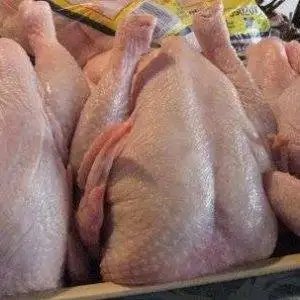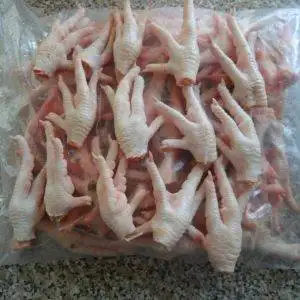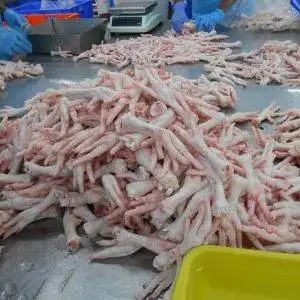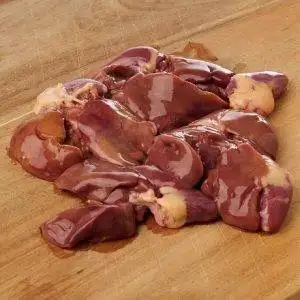Description
Frozen Whole Chicken Brazil: Export, Suppliers, Prices & Market Trends
Introduction: Why Frozen Whole Chicken from Brazil Leads the World
When it comes to poultry, few countries can compete with Brazil’s Frozen Whole Chicken. Known for high quality, competitive pricing, halal certifications, and strict biosecurity, Frozen Whole Chicken Brazil dominates the global chicken export market. From Paraná to São Paulo, chicken farms and integrated processing plants make Brazil the backbone of the global poultry supply chain.
This article provides a comprehensive guide to the Frozen Whole Chicken market in Brazil: production process, suppliers, export regulations, halal standards, pricing trends, and sustainability challenges.
Brazil’s Role in the Global Frozen Chicken Market
Brazil as a Top Exporter
-
Brazil is the largest chicken meat exporter in the world.
-
Frozen Whole Chicken accounts for a significant share of poultry shipments, with Brazil supplying markets across the Middle East, Asia, Africa, and Latin America.
-
In recent years, Brazilian exporters shipped millions of tons of frozen whole birds annually.
Why Importers Choose Brazil
-
Affordable Protein Source – Costs remain competitive, thanks to abundant corn & soy for feed.
-
Quality Standards – Modern processing plants, strict sanitary regulations, and certifications.
-
Halal Certification – Ensures access to Muslim-majority countries (e.g., Saudi Arabia, UAE, Egypt).
-
Stable Supply Chain – Brazil’s large-scale farms and advanced cold logistics guarantee consistency.
The Frozen Whole Chicken Production Process in Brazil
1. Hatcheries & Farms
-
Brazil’s poultry industry is vertically integrated: hatcheries, feed mills, farms, slaughterhouses are often owned by the same company.
-
Broiler chickens are raised with strict health monitoring, balanced diets (corn & soy feed), and controlled environments.
2. Processing & Freezing
-
Chickens are slaughtered under sanitary supervision.
-
The whole bird is eviscerated, cleaned, chilled, and deep-frozen at −18°C or lower.
-
State-of-the-art blast freezers preserve freshness and prevent microbial growth.
3. Packaging & Storage
-
Export packaging includes branded or private-label cartons.
-
Birds are typically packed by size (800g–1800g, 1000g–1400g, etc.) to meet buyer requirements.
Brazilian Frozen Chicken Prices (2024–2025) Frozen Whole Chicken Brazil
-
Average wholesale prices in Brazil range from USD 1.48 – USD 2.80 per kg.
-
Farmgate prices fluctuate based on feed costs, export demand, and currency exchange rates.
-
For large-volume importers, prices can be negotiated for containers (27 MT each).
💡 Tip for Importers: Always compare CIF (Cost, Insurance & Freight) vs FOB (Free on Board) prices when buying Brazilian frozen whole chicken.
Key Frozen Whole Chicken Exporters in Brazil Frozen Whole Chicken Brazil
The top 10 largest chicken exporters in Brazil include:
-
BRF S.A. – One of the largest global food companies, with brands like Sadia & Perdigão.
-
JBS S.A. (Seara) – A multinational powerhouse in meat production.
-
Aurora Alimentos – Strong in halal-certified chicken.
-
Copacol – Known for high-quality poultry exports.
-
Frangosul & Minuano – Medium-sized but important exporters.
These companies operate massive integrated plants, supplying whole frozen chicken, chicken cuts, and value-added products worldwide.
Halal Certification: Key to Export Success Frozen Whole Chicken Brazil
A major reason Brazilian chicken dominates global trade is halal certification. Nearly all frozen whole chickens exported from Brazil are slaughtered according to Islamic guidelines under the supervision of authorized halal bodies.
-
Markets Served: Saudi Arabia, UAE, Kuwait, Qatar, Egypt, Iraq, and Indonesia.
-
Halal Process: Birds are hand- or machine-slaughtered with prayer, drained of blood, processed, and frozen under Islamic supervision.
For many importers in the Middle East, halal certification is non-negotiable.
Export Markets & Regulations
Major Import Destinations
-
China – One of Brazil’s biggest poultry buyers.
-
Middle East – A stronghold for halal-certified Brazilian chicken.
-
Africa – Nigeria, South Africa, Angola are growing markets.
-
Latin America & Caribbean – Neighboring countries rely heavily on Brazilian poultry.
Trade Challenges
-
Avian Influenza (Bird Flu): Outbreaks can cause bans (e.g., 2025 China ban after cases in Rio Grande do Sul).
-
EU Regulations: Strict sanitary standards; bans were lifted in 2025 for certain regions.
-
Labeling & Traceability: Exporters must comply with each country’s labeling, certification, and inspection systems.
Consumer Trends in Frozen Whole Chicken
-
Halal Demand – Middle East & Muslim-majority nations dominate demand.
-
Price Sensitivity – Frozen whole chicken offers cost savings vs fresh or processed chicken.
-
Retail & Foodservice Use – Hotels, restaurants, caterers prefer whole birds for versatility.
-
Quality Expectations – Importers want uniform size, clean skin, no bruising, no freezer burn.
-
Value-Added Preferences – Some buyers request IQF (Individually Quick Frozen), organic, or antibiotic-free certifications.
Sustainability & Animal Welfare in Brazil’s Poultry
Brazil’s poultry industry is under global scrutiny:
-
Feed & Environment – Soy cultivation linked to Amazon deforestation.
-
Carbon Footprint – Cold chain logistics require high energy use.
-
Animal Welfare – Stocking density, transport conditions, and stunning methods face consumer concerns.
Many exporters now highlight:
-
Deforestation-free supply chains
-
Animal welfare certification
-
Renewable energy adoption in processing plants
Opportunities & Challenges Ahead
Opportunities
-
Expanding demand in Asia & Africa.
-
Premium products (organic, antibiotic-free, animal-welfare certified).
-
Digital traceability for global buyers.
Challenges
-
Avian influenza risks and trade restrictions.
-
Rising feed costs due to global grain volatility.
-
Increasing sustainability requirements from importers.
How to Import Frozen Whole Chicken from Brazil
-
Find a Reliable Supplier – Partner with top exporters (BRF, JBS, Aurora, etc.).
-
Check Certifications – Halal, ISO, HACCP, veterinary health certificates.
-
Negotiate Terms – MOQ (minimum order quantity), price per kg, packaging size.
-
Shipping & Logistics – Typically shipped in 40-foot reefer containers.
-
Customs & Import Regulations – Ensure compliance with local food safety and labeling laws.
Final Thoughts
Frozen Whole Chicken from Brazil is a trusted product across global markets. Its strengths—competitive price, reliable supply, halal certification, and high quality standards—make it a leading protein export.
As global demand for affordable and certified poultry continues to rise, Brazil is well positioned. However, sustainability, disease prevention, and regulatory compliance remain the key challenges for the future.
For importers and distributors, sourcing https://en.wikipedia.org/wiki/Chicken_as_foodfrozen whole chicken from Brazil remains a profitable and reliable opportunity.






Reviews
There are no reviews yet.